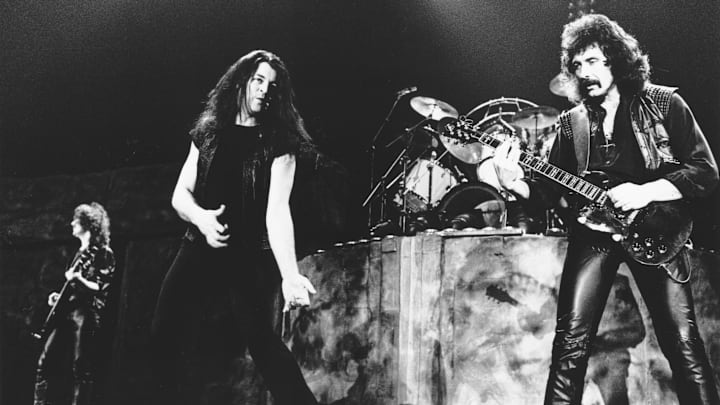Back in 1963, a talented trio of songwriters penned a pop song based on a conversation one of them had heard between a teenage girl and a boy who was hitting on her. The writers – Bob Feldman, Jerry Goldsmith, and Richard Gottehrer – cut a demo of the tune with a trio of singers who had scored a modest hit or two in the early 1960s.
The plan was to pitch the song to the Shirelles, another singing group that had already scored a bunch of top ten hits, including two number ones – “Will You Love Me Tomorrow,” and “Soldier Boy.”
But when everyone heard the demo – sung by Peggy Santiglia with harmony from sisters Phyllis and Barbara Allbut – they decided to simply release that demo. And that’s how the Angels scored their one and only chart-topping single – “My Boyfriend’s Back.”
Songs from the 1970s that were never supposed to be hits and were
Rock & roll is filled with unlikely success stories. Songs that were afterthoughts. Songs that were written hastily because the album was too short. Songs that most of the band didn’t even like. Yet for some magical reason, that would be the song that would hit a nerve.
Today, we’re going to take a quick look at six such songs from the 1970s. In hindsight, it’s hard to think of a world in which these were not major hits, but when they were recorded, no one – especially the artists themselves – thought they were anything more than a random album track. The listening public had other ideas.
“Paranoid” by Black Sabbath (1970)
They originally thought they’d play progressive music with more of an edge than contemporary art-rockers. What they were doing was inventing metal. The quartet from Birmingham – Ozzy out front shrieking, Tommy wailing on guitar, while Geezer and Bill pounded the rhythm relentlessly forward – made a bold statement in 1969 with their self-titled debut album. Two years later, they conquered the world with the follow-up. It was going to be named for one of its heaviest tracks – “War Pigs.”
But the label thought the album was a little short so they asked for another song. Tommy Iommi came up with a fuzzy riff. Geezer Butler jotted down some lyrics. He later admitted that they made little sense, primarily because he had no idea what “paranoid” meant. He just kind of liked the sound of it. The word itself never appears in the song. “Make a joke, and I will sigh, and you will laugh, and I will cry” isn’t exactly textbook paranoia. But it provided Ozzy Osbourne with a great lyric to belt out, aided by plenty of reverb to make his voice even more spectral than usual.
He essentially read the lyrics off a sheet as he was singing but there’s no denying the effect. “Paranoid” was an international hit – Sabbath’s highest-charting single in the UK, and first song to chart in the USA. Don’t look to it for medical advice. But for seminal hard rock – it’s hard to top this afterthought.
“Lucky Man” by Emerson, Lake & Palmer (1970)
In one way, ELP’s inclusion of “Lucky Man” on its self-titled debut album is the exact same story as Black Sabbath and “Paranoid.” They had finished recording all their material and found they still needed a song to fill out the album. But in another way, the story couldn’t be different. Because far from being a quickly-composed afterthought, “Lucky Man” was the exact opposite – a “beforethought” if there is such a thing.
Greg Lake had written it when he was 12 years old. He had just gotten a guitar and learned four chords. He took those chords and wrote a simple, Arthurian tale of a noble fighting man from the days of yore. Sitting in the studio a decade later with his new bandmates, Lake offered it as the new album’s final track. No one liked it.
Keyboardist Keith Emerson went off to the pub while Lake and drummer Carl Palmer laid down an initial track. Still, no one liked it.
But Lake kept at it, adding bass and an electric guitar solo so that by the time Emerson returned, he thought it was good enough for him to invest some time. He brought out his brand spanking new Moog Synthesizer and began experimenting.
Since the track was mostly finished, he put together something for the end. It involved the portamento switch, and it took a sweet little 200-second ballad and turned it into a four-and-a-half-minute soaring progressive juggernaut. “Lucky Man” was ELP’s first single, charting in the USA and hitting the top 25 throughout Europe.
Continued on next slide...
